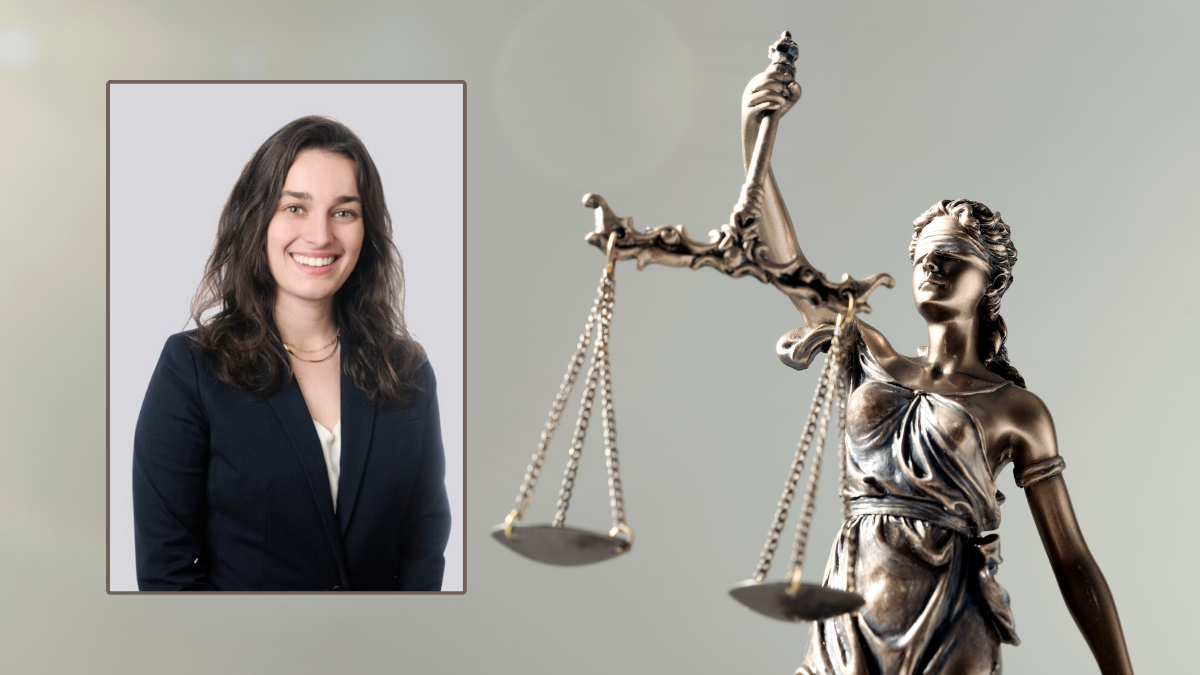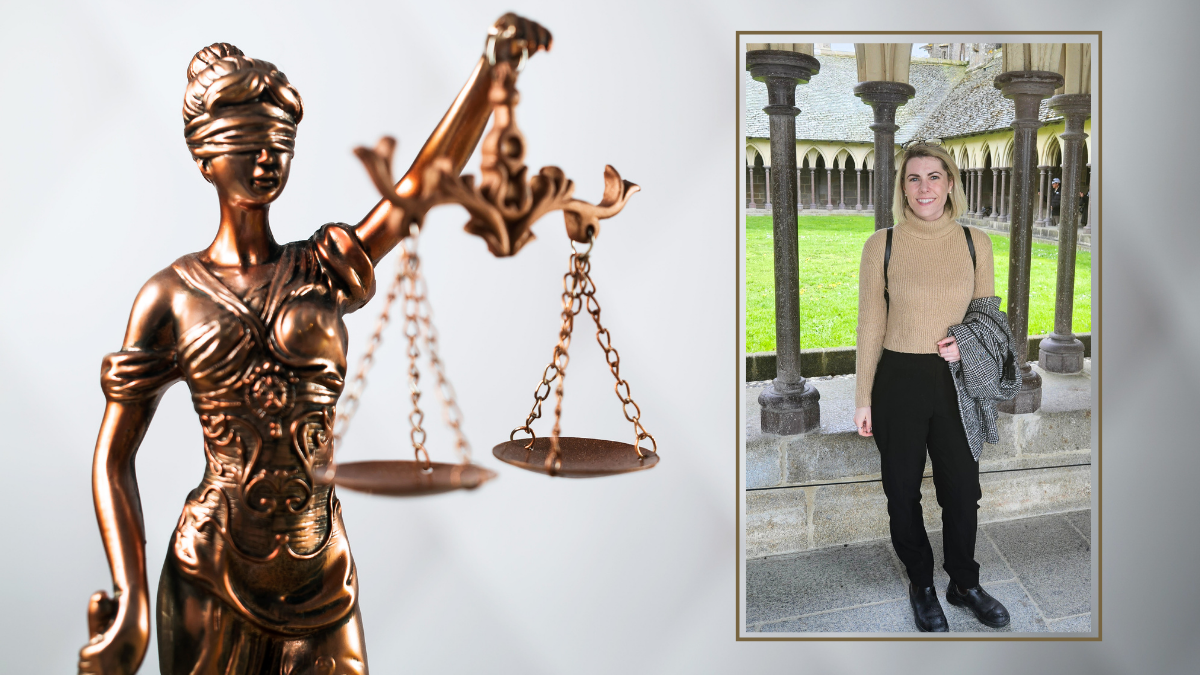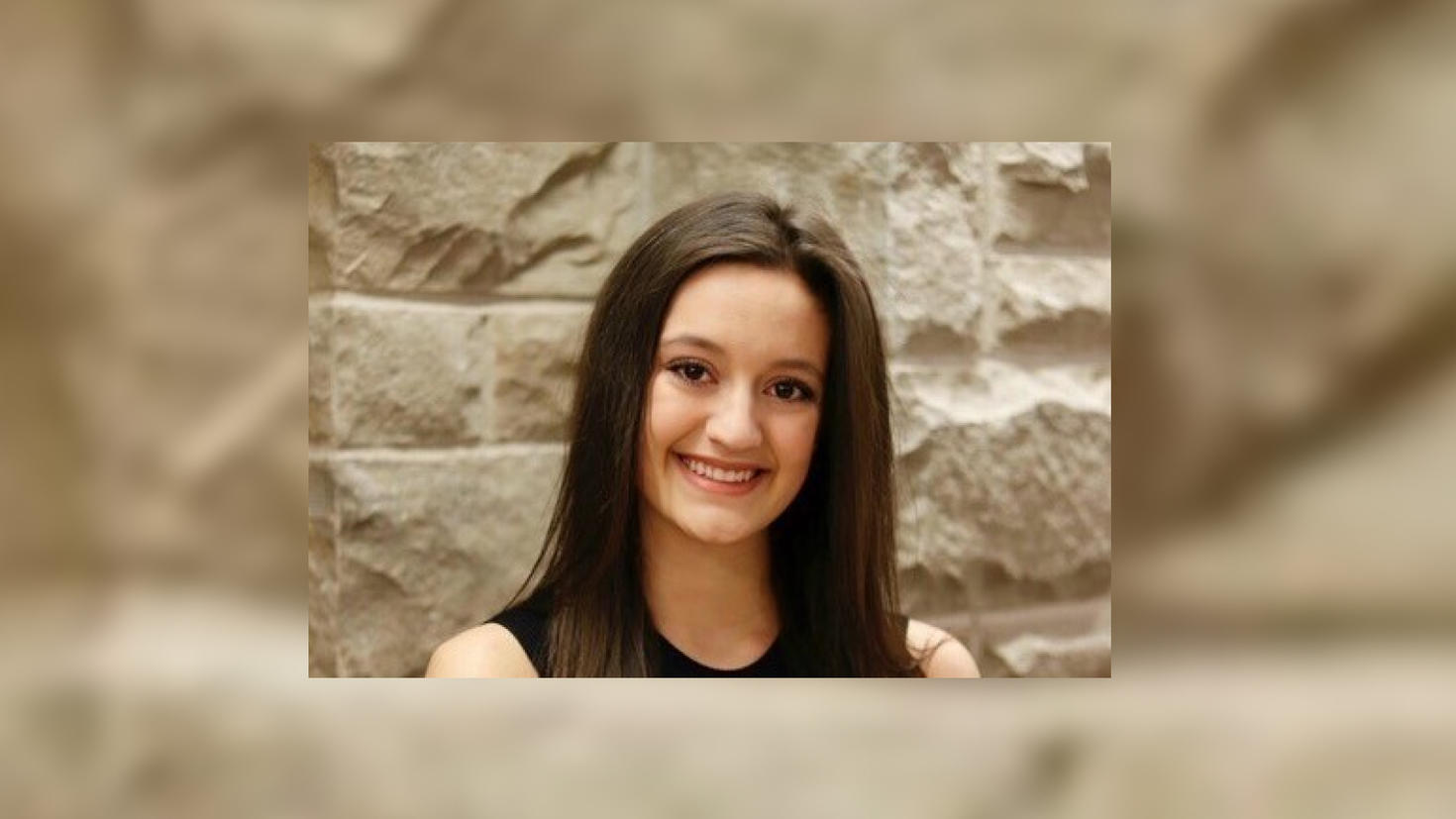Ryley Alp recently won the gold medal for best student paper from the Wrongful Conviction Law Review (WCLR).
Her paper, “Queer in Fear: The Role of Homophobia and Transphobia in Wrongful Convictions,” was selected by the Canadian-based law review’s editorial board of wrongful conviction scholars.
The WCLR is a non-profit, open access, peer-reviewed international journal focusing on wrongful convictions and miscarriages of justice. While it is fundamentally a law review, it also accepts submissions from other disciplines (e.g. criminology, sociology, psychology, criminal justice etc.).
Alp originally wrote the paper for the wrongful conviction course taught by Professors Mark Green and Stephen Bindman.
From her abstract: “This paper will explore how the criminal justice system’s ingrained prejudice against LGBTQ2S+ people can lead to wrongful convictions. Primarily, this paper will focus on the negative stereotypes of and myths surrounding queer people, rooted in homophobia and transphobia, that lead to wrongful convictions. Examining the cases of Miguel Castillo, Bernard Baran, The San Antonio Four, and Monica Jones, this paper will prove that these pervasive and dangerous stereotypes impact queer people at every step of the criminal justice system. This paper will conclude by briefly discussing instances of queer wrongful convictions in the Canadian context.”
Alp is currently articling with Fasken. She will clerk next year for the Nova Scotia Court of Appeal.
Says Alp: “Throughout law school I had a strong interest in exploring how queer identities intersect with the legal system. In taking the wrongful convictions course I realized that there was a gap in the research around how homophobia and transphobia might impact wrongful convictions. My research found that the biases and stereotypes surrounding the queer community have historically impacted wrongful convictions, and that 2SLGBTQ+ people are overrepresented throughout the system.
“I feel that given the current social climate, where we are seeing an increase in homophobic and transphobic rhetoric, it is especially important to look critically at these biases. In my paper I noted the increase in anti 2SLGBTQ bills being signed into law.
“It is critical to understand that when the law discriminates based on queer identity, more queer people will end up in the criminal justice system. The rise in anti-LGBTQ2S+ sentiment can drive the stereotypes that impact wrongful convictions, which is demonstrated through my case studies.
“There is a clear need for more research, and I hope my paper will lead to further examination of this topic so that we can better understand the connection between queer identity and wrongful convictions. I am excited that I had the opportunity to address the gap and shed light on the experience of queer people in the criminal justice system. I am very grateful to the people who helped me get this paper published.”
Professor Green recalls that Ryley was a regular and thoughtful contributor during class discussion (conducted via Zoom). The subject of her major paper was extremely well written, tying for the highest grade in the class.
“Her insights, based on some case examples, are well reasoned and argued, and offer conclusive evidence that prejudice, with respect to sexual orientation and gender expression, can lead to wrongful convictions,” said Green.
“Ryley tackled an important and often ignored subject that was rarely written about by other students or even discussed during our course. Through the WCLR, Ryley now has a broader public forum to share her research with.”
Alp previously completed her B.A. in Media, Information & Technoculture at Western University, along with a diploma in Television Broadcasting from Fanshawe College. She received her J.D. from the uOttawa Common Law Section in 2023, where she completed the Option in Law and Technology. When she’s not working, Ryley enjoys baking, practicing yoga, scrutinizing her fantasy football team, and spending time with her cat, Poe.
Last year, Samantha Savage won the award for her paper " The Reliability of Expert Evidence in Canada: Safeguarding Against Wrongful Convictions,” Wrongful Conviction Law Review, 3(1), 82–93. (Original work published July 20, 2022).
Prior to that, Esti Azizi won the gold medal for her paper "Maintaining Innocence: The Prison Experiences of the Wrongfully Convicted,” The Wrongful Conviction Law Review, 2(1), 55–77.
Both were students in the wrongful conviction class.


